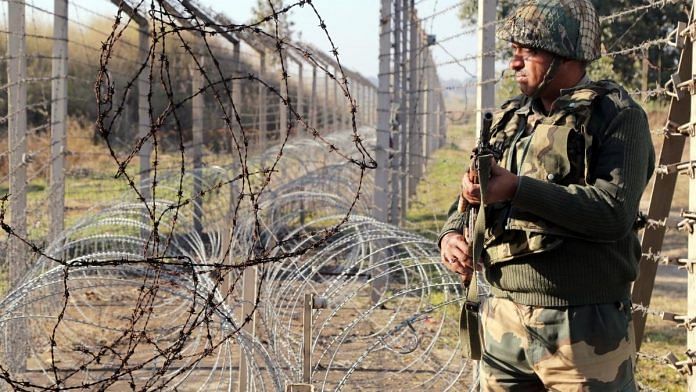The Ministry of Home Affairs’ order to extend operational jurisdiction of the Border Security Force in Punjab, West Bengal, and Assam defies conditions on the ground, availability of workforce, the levels of training and exposure required to fulfil what are in essence policing roles. Instead of encouraging and pushing the BSF towards its primary operational role, this extra responsibility will make working conditions even more difficult for the service.
In any case, the available data on crime does not support the government’s argument that this move is in order to keep the Indian borders safe from smuggling, especially narcotics. In fact, it will further dilute the raison d’être for raising the BSF in the first place.
The BSF rightly claims to be the world’s largest border guarding service, and at almost 250,000 personnel, it is way ahead of any other claimant. From the dry hot desert of Rajasthan, the adjoining salt crusted landscape of Kutch, to the humid riverine terrain of West Bengal and Assam, the BSF guards the boundary of India. In between, there is Punjab and its densely farmed lands, as also the live situation on the Line of Control where some BSF battalions are deployed. Some units are also deployed on anti-Naxal operations in the jungles of central India, adding to its status.
There is one achievement, however, which no other border guarding service can claim – the BSF is the only one in the world which, besides all terrains, also guards the roads in its country’s national capital, New Delhi. BSF troopers can be seen on the roads of Lutyens’ Delhi, in pickets and with a variety of assault weapons. The range of deployment defies all levels of training, as well as the availability of quality leadership. And it also takes away from the primary role of the BSF for which it was raised, and it proudly displays as a motto – India’s first line of defence.
Also read: Five myths about Afghanistan that India must overcome, along with its timidity
A catastrophe is waiting to happen
With the shortage of workforce touching five-figure levels, enhancing operational jurisdiction of the BSF in the three border states from 15 km to 50 km is plainly illogical. The cycle of training, courses, field deployment, peace posting and family – all go for a toss when additional roles are lumped on to troops, military or armed police. If this MHA order is implemented in its fullest sense, then a veritable catastrophe is waiting to happen, for two very basic reasons. Basic for local residents, and the police, but not for outsiders like the BSF. Since the higher leadership of the BSF is largely drawn from the Indian Police Service, they would understand these ‘basic’ reasons.
Entering and searching a house anywhere in India requires local knowledge, elementary sociology, and truckloads of tact. This is a simple lesson that a Superintendent of Police in any district will know from day one of posting. In border districts and states, there are added complexities – it’s certainly not easier doing business. So, a BSF-led search in a house, without local protocols, could lead to either of two outcomes, or both. Allegations of ‘outraging the modesty of a woman’ and/or atrocity against a person belonging to a Scheduled Caste or Tribe. Kashmir-like allegations could well become the norm in border districts of these three states.
Local investigations and litigations will then occupy the service careers of that BSF search party for years. And it will do nothing to enhance India’s security. Even as BSF provides the first line of defence on the boundary of India, it is the local police and its network amongst the populace that plays the most vital role. The last report of the Department of Revenue Intelligence does not have an entry for seizures made by the BSF, while it has figures for Sashastra Seema Bal (SSB) and Central Reserve Police Force (CRPF), amongst other Central Armed Police Forces. And surprisingly, the MHA’s National Crime Records Bureau annual report has no record for CAPF seizures, an alarming error.
What is of interest is the monthly seizure report of the Narcotics Control Bureau (NCB), unfortunately only updated till March 2019 in the public domain. The data with respect to police or central agencies is so overwhelmingly in favour of the former that the current MHA argument does not stand to scrutiny. On the other hand, there is a danger lurking in the MHA logic, which somehow believes that anything central is more patriotic than that of the states. This is as untrue as it is unhealthy. And nobody knows that more than the residents of border districts, who have an opinion about the BSF that isn’t very complimentary in the least bit.
Manvendra Singh is a Congress leader and Editor-in-Chief of Defence & Security Alert. He tweets @ManvendraJasol. Views are personal.
(Edited by Prashant)



